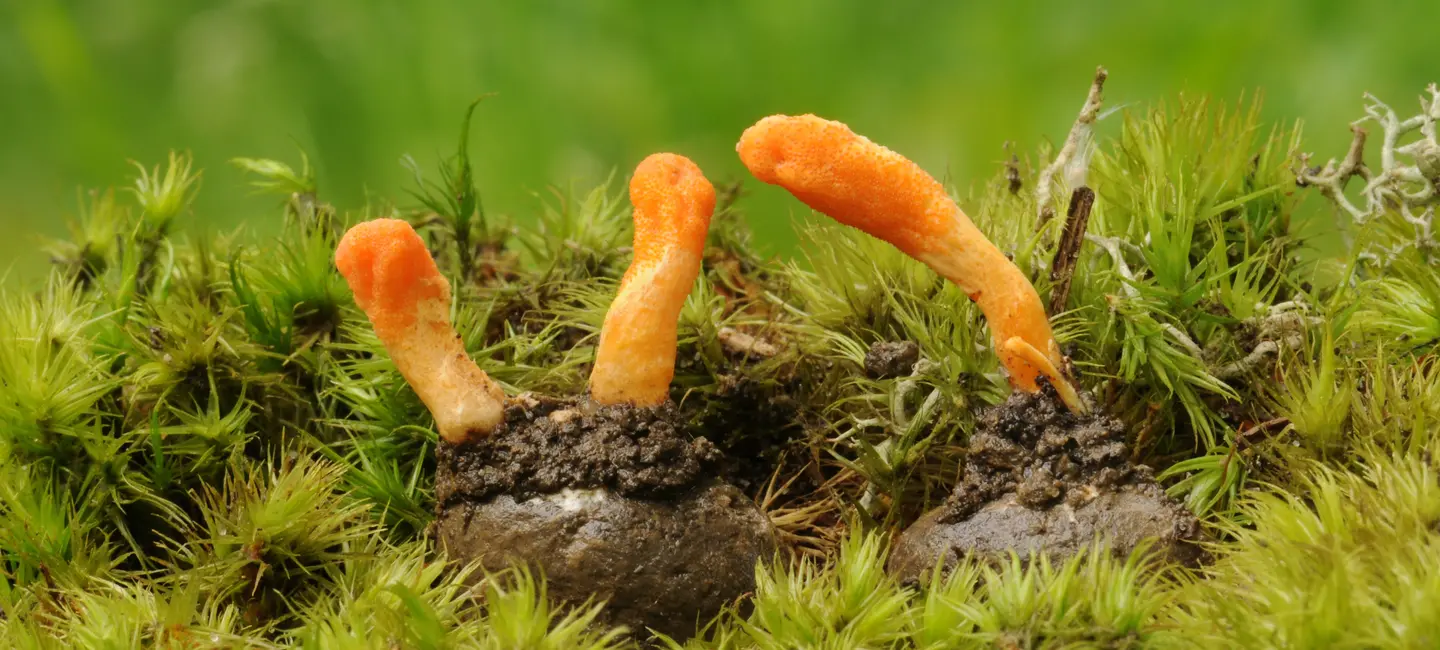
Cordyceps is a fungus that lives on certain caterpillars in the high mountain regions of China. It is sometimes used as a medicine.
Most supplements use cordyceps that is made in a lab. Although cordyceps is sometimes called a mushroom, the type of cordyceps that is made in a lab does not grow a mushroom.
Cordyceps might improve immunity by stimulating cells and specific chemicals in the immune system. It might also help fight cancer cells and shrink tumor size, particularly with lung or skin cancers. Natural cordyceps is hard to get and might be expensive.
People most commonly use cordyceps for athletic performance, kidney disorders, liver problems, and sexual problems, but there is no good scientific evidence to support these uses.
Is It Effective?
NatMed Pro rates effectiveness based on scientific evidence according to the following scale: Effective, Likely Effective, Possibly Effective, Possibly Ineffective, Likely Ineffective, Ineffective, and Insufficient Evidence to Rate.
- Athletic performance. Taking cordyceps by mouth doesn't seem to improve athletic performance in adults.
There is interest in using cordyceps for a number of other purposes, but there isn't enough reliable information to say whether it might be helpful.
Is it Safe?
When taken by mouth: Cordyceps is possibly safe for most people when taken in doses of 3-6 grams daily for up to 1 year. It might cause mild side effects such as diarrhea, constipation, and stomach discomfort.
Special Precautions & Warnings:
Pregnancy and breast-feeding: There isn't enough reliable information to know if cordyceps is safe to use when pregnant or breast-feeding or what the side effects might be. Stay on the safe side and avoid use.
"Auto-immune diseases" such as multiple sclerosis (MS), lupus (systemic lupus erythematosus, SLE), rheumatoid arthritis (RA), or other conditions: When taken by mouth, cordyceps might cause the immune system to become more active. This could increase the symptoms of auto-immune diseases. If you have one of these conditions, it's best to avoid using cordyceps.
Surgery: When taken by mouth, cordyceps might increase the risk of bleeding during surgery. Stop taking cordyceps 2 weeks before surgery.
Medications that decrease the immune system (Immunosuppressants)
Interaction Rating=Moderate Be cautious with this combination.
Cordyceps can increase the activity of the immune system. Some medications, such as those used after a transplant, decrease the activity of the immune system. Taking cordyceps along with these medications might decrease the effects of these medications.
Medications that slow blood clotting (Anticoagulant / Antiplatelet drugs)
Interaction Rating=Moderate Be cautious with this combination.
Cordyceps might slow blood clotting. Taking cordyceps along with medications that also slow blood clotting might increase the risk of bruising and bleeding.
Testosterone
Interaction Rating=Minor Be watchful with this combination.
Cordyceps might increase testosterone levels. But it's not clear if this is a big concern. People taking testosterone should be cautious until more is known about this potential interaction.
Herbs and supplements that might slow blood clotting: Cordyceps might slow blood clotting and increase the risk of bleeding. Taking it with other supplements with similar effects might increase the risk of bleeding in some people. Examples of supplements with this effect include garlic, ginger, ginkgo, nattokinase, and Panax ginseng.
There are no known interactions with foods.
Cordyceps has most often been used by adults in doses of 3-6 grams by mouth daily for up to 1 year. Cordyceps supplements are made in a lab. Speak with a healthcare provider to find out what dose might be best for a specific condition.
Bailing, Caterpillar Fungus, Caterpillar Mushroom, Cs-4, Champignon Chenille, Chinese Caterpillar Fungus, Chinese Cordyceps Fungus, Cordyceps sinensis, Dong Chong Xia Cao, Dong Chong Zia Cao, Hsia Ts'Ao Tung Ch'Ung, Hirsutella sinensis, Jinshuibao Jiaonang, Jinshuibao Pian, Ophiocordyceps sinensis, Tochukaso, Vegetable Caterpillar.
Information on this website is for informational use only and is not intended to replace professional medical advice, diagnosis, or treatment. While evidence-based, it is not guaranteed to be error-free and is not intended to meet any particular user’s needs or requirements or to cover all possible uses, safety concerns, interactions, outcomes, or adverse effects. Always check with your doctor or other medical professional before making healthcare decisions (including taking any medication) and do not delay or disregard seeking medical advice or treatment based on any information displayed on this website.
© TRC Healthcare 2024. All rights reserved. Use and/or distribution is permitted only pursuant to a valid license or other permission from TRC Healthcare.
